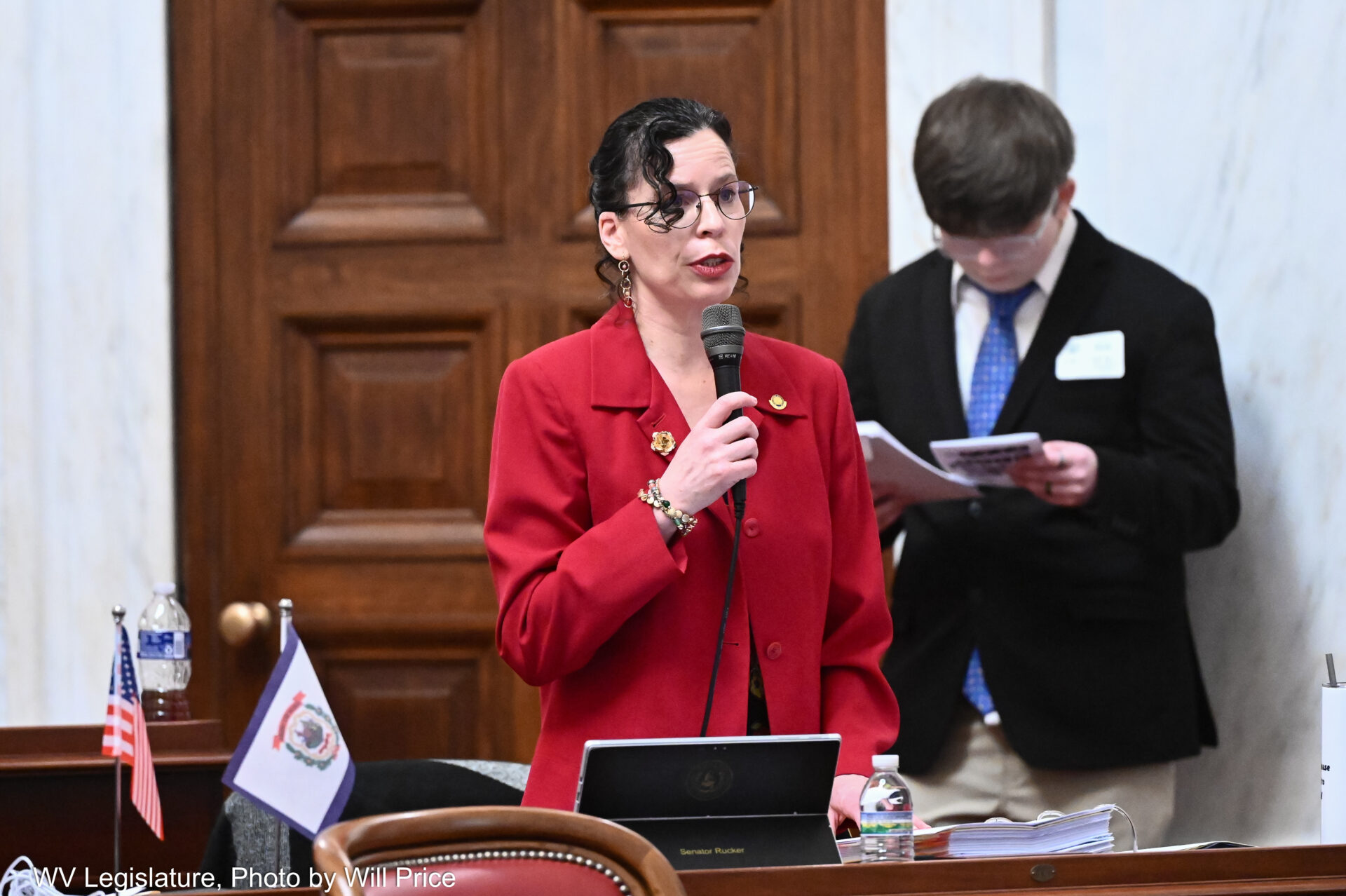Abortifacients are medications used to induce an abortion. They can be used to treat a miscarriage or end an unwanted pregnancy.
Senate Bill 85 imposes both a possible civil and criminal penalty for violating the state’s abortion ban by prescribing or providing these medications to unlawfully terminate a pregnancy.
Patricia Rucker, R-Jefferson, is the lead sponsor of the bill.
“This important legislation is designed to protect life in West Virginia and stop the practice of abortions being sent and delivered to West Virginia residents without a lawful prescription,” Rucker said.
Abortion is already illegal in the state, with just a few exemptions for medical emergencies and rape and incest. The ban also applies to abortions performed with abortifacients.
Mifepristone is a widely used abortifacient that can be used to terminate a pregnancy from home. The drug is also used to manage miscarriages and treat illnesses like endometriosis or Cushing’s syndrome. The US Supreme Court held up access to these drugs over the summer, even in states where abortion is prohibited.
Opponents of the bill worry it could make it harder for physicians to get life-saving medications to patients.
Kelly Lemons is a certified nurse midwife. She spoke against the bill at the Senate Judiciary Committee last Thursday.
“Something that a lot of people may not be aware of is when we think about using misoprostol for hemorrhage management that is a safe, low-cost, very effective method, and is probably your most-used method in your lower-acuity hospital settings,” Lemons said.
She said the bill could have a cooling effect on the administering of medications that she says are already facing barriers.
“The lack of clarity in this bill with couriers and distribution is going to put a barrier in getting those medications to those lower acuity hospitals.
The bill was amended by Sen. Ryan Weld, R-Brooke, to include a provision that would allow for the distribution of the medication for prescriptions permitted under the current law.
Rucker said the bill would enforce the state’s abortion ban as written.
“So just like we have lots and lots of laws in the books, we expect those laws to be followed,” Rucker said. “What this legislation does is give a pathway for enforcement.”
The bill would fine individuals within and outside the state who prescribe and provide abortifacients to people in West Virginia.
The bill was amended yesterday to also allow for civil suits against offenders. Anyone who has been illegally prescribed or given the drugs in the state could sue their provider under the amended bill.
Rucker, who was responsible for one of those amendments, said that that gives the bill more bite. She called it necessary because some states, like New York, have shield laws protecting state residents from out-of-state charges for prescribing and distributing abortifacients.
“Civilly, the need for evidence of the bad actor’s intent is a little less than a criminal and, so, slightly easier to prove,” Rucker said. “This allows just the ordinary victim to be able to pursue it in court.”
Sen. Eric Tarr, R-Putnam, said he was in favor of the bill that came out of the Judiciary committee. He spoke against the provision added by Rucker’s amendment that allows for civil suits. He said he is concerned about expanding the possibilities for lawsuits, saying it’s bad for business.
“I’ve been the biggest champion for this bill. I’ve been all over it, because we can still come back and do this without making this mistake,” Tarr said. “Because if you want young families having babies over here in West Virginia, we need jobs.”
Sen. Joey Garcia, D-Marion, stood up to speak against the bill from an economic stance as well.
“When I hear about job losses, well, I could see that, because people want to move out of the state when you have a state that doesn’t appreciate health care that women should be able to get, and that they do get in other states,” Garcia said.
Ultimately, the bill had five no votes, with one Democrat and four Republicans voting against the bill.
It now heads to the House for further review.
